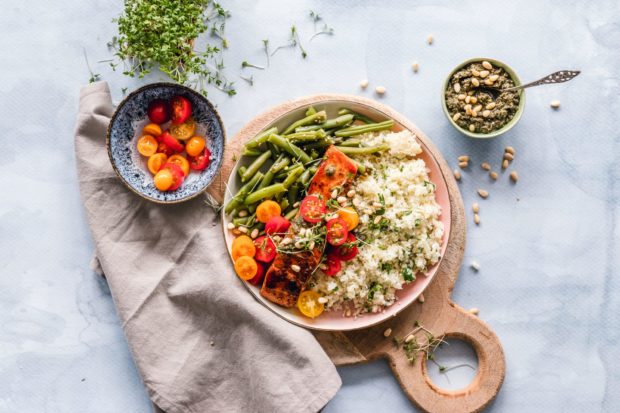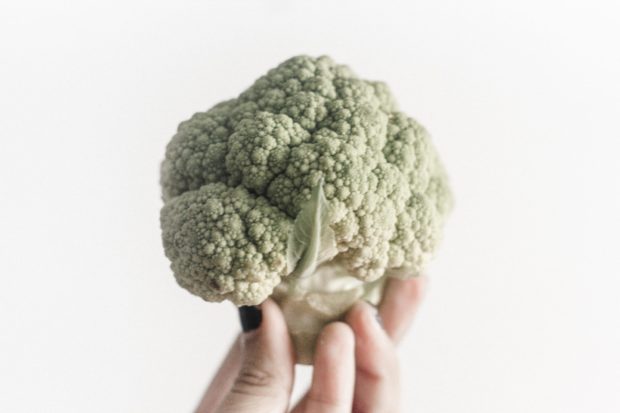Thanksgiving is the time of year when families and friends gather together to celebrate everything that they’re thankful for. Thanksgiving is also the time of the year when each person sits down to enjoy their serving of turkey. Now, while Thanksgiving meals do often revolve around turkey, this doesn’t mean that vegans, vegetarians, and other plant-based eaters can’t enjoy a Thanksgiving meal. In fact, there are a few ways in which one can enjoy a more plant-based Thanksgiving. Believe it or not, it’s not always about the turkey.
Additionally, consuming a more plant-based diet can have benefits for the body that include a reduced risk of cognitive decline and improved heart health. What’s more, a plant-based diet is also better for the planet as switching to a more plant-based diet will serve to reduce greenhouse emissions, land use as well as water use (1).
With that said, you may be ready to adopt a more plant-based form of eating this Thanksgiving. However, where do you start? Read on to find out how a little pre-planning and the right alternatives can help make this Thanksgiving the healthiest one yet.
A Plant-Based Thanksgiving Meal
Vegetable dishes
No Thanksgiving meal would be complete without an array of vegetable dishes. Thankfully, the fall season brings with it a number of vegetables that you would love to see on your plate come Thanksgiving Day. Now, whether you roast it, steam it, or even fry it, try to incorporate any of these vegetables into your plant-based Thanksgiving meal.
Haricot vert (green beans)
Most commonly known as green beans, haricot verts are vegetables that you should always eat a serving of. This is because they are extremely rich in vitamins A, C, K as well as folic acid, fiber, and chlorophyll.
Not only will vitamin C help to protect your immune system over the holiday season but, along with vitamin A, it will also help to protect your skin. This is because both vitamin A and C help to encourage the production of collagen. This then firms your skin and reduces the appearance of fine lines and wrinkles.
Additionally, the fiber content will help prevent you from overeating by encouraging satiety and folic acid, according to research found in the Nutrition Journal, which will help to protect your heart health.
Acorn squash
A winter squash that varies in color from dark green to white, an acorn squash would be the perfect addition to your Thanksgiving meal.
In addition to protein, magnesium, folate as well as B vitamins, winter squash is also a good source of carotenoids – plant-based antioxidants that can help to protect against diseases. In fact, a study published in the journal Antioxidants discovered that zeaxanthin, one of the carotenoids found in acorn squash, can help to protect against eye-related disorders.
Kohlrabi (German turnip)
A lesser-known fall vegetable, kohlrabi is a vegetable related to the cabbage family with a slightly sweeter taste. The vegetable is rich in a number of beneficial nutrients that include vitamins C and B6. It also contains potassium and anthocyanins.
Anthocyanins are plant-based compounds known as flavonoids that provide vegetables and fruit with a red, purple, or blue color. Found in the skin of kohlrabi, berries, as well as red wine, a diet high in anthocyanins, have been shown to effectively reduce the risk of heart disease as well as cognitive decline (2,3).
Mashed potatoes
Now while mashed potatoes are one of the signature meals associated with Thanksgiving, they’re not the only mashed dish you can enjoy. In fact, there are other forms of mashed dishes that can be served come Thanksgiving that are just as delicious and even healthier.
 Mashed cauliflower
Mashed cauliflower
A cruciferous vegetable, cauliflower is rich in antioxidants, phytonutrients, choline as well as fiber. These four compounds will help to protect your health over the holidays.
The high fiber value will help promote healthy digestion whereas choline, according to findings published in the journal Nutrition Today, will help with cognitive functions such as learning and memory.
Mashed turnip
Loaded with a wide range of vitamins, minerals, as well as omega-3 fatty acids, your health will really benefit from including turnips in your plant-based Thanksgiving plans.
In addition to omega-3 fatty acids, turnips are also rich in phosphorus. This not only helps to maintain the health of your bones and teeth, but it also helps your kidneys. It does this by helping to filter out the waste in your kidneys. In doing so, it reduces the risk of kidney stones, which can be a very painful condition.
Mushroom Gravy
You don’t need a turkey or turkey bits in order to have a delicious gravy to accompany your plant-based Thanksgiving meal. This is because mushroom gravy will work just as well, and it’ll have a lot more benefits.
In fact, mushroom consumption has been linked to a stronger immune system and healthier bones, as well as containing anti-aging properties. A study from Pennsylvania State University also revealed how mushroom consumption can help to reduce the risk of neurodegenerative diseases like Alzheimer’s and Parkinson’s.
Stuffing
If you’re looking to eat turkey this year, take a more-plant based approach when it comes to stuffing.

Healthy foodstuffs rich in nutrients and minerals that you can include in your stuffing include lentils, chestnuts, almonds, cranberries, hazelnut, and quinoa.
The turkey
When it comes to finding a plant-based substitute for your plant-based Thanksgiving dinner, the most important thing is to ensure that the substitute is rich in flavor as well as filling and satisfying.
While you could go for plant-based meat substitutes that mimic both the taste and texture of meat, there are other more plant-based options.
For one, you could opt for a lentil meatloaf. Rich in both protein and fiber, lentils will definitely help satisfy your Thanksgiving cravings. What’s more, lentils also contain polyphenols – compounds that not only help to curb inflammation in the body, but they’ve also been linked to protecting brain health.
Also, you can create your own plant-based patties. These can be made from a wide range of pulses – which include lentils, beans, peas, chickpeas. All of which are rich in protein, fiber, and antioxidants. As a result, they can help to reduce the risk of both type 2 diabetes and heart disease.
Dessert
Now you can’t exactly round off your plant-based Thanksgiving meal without some dessert.

Sweet potato pie is always a favorite come Thanksgiving, and for good reason. In addition to its wonderful taste, sweet potatoes are not only rich in fiber, but they also contain high levels of selenium and vitamin C.
Selenium is an important mineral that’s has antioxidant benefits and it also helps to protect both your heart and thyroid health (4).
References
Aleksandrowicz L, Green R, Joy EJM, Smith P, Haines A (2016) The Impacts of Dietary Change on Greenhouse Gas Emissions, Land Use, Water Use, and Health: A Systematic Review. PLoS ONE 11(11): e0165797. https://doi.org/10.1371/journal.pone.0165797
Cassidy, Aedín & Mukamal, et al. (2013). High Anthocyanin Intake Is Associated With a Reduced Risk of Myocardial Infarction in Young and Middle-Aged Women. Circulation. 127. 188-96. https://doi.org/10.1161/CIRCULATIONAHA.112.122408.
Ganguly, P., & Alam, S. F. (2015). Role of homocysteine in the development of cardiovascular disease. Nutrition journal, 14, 6. https://doi:10.1186/1475-2891-14-6
Kalaras, M & Richie, J & Calcagnotto, A & Beelman, R. (2017). Mushrooms: A rich source of the antioxidants ergothioneine and glutathione. Food Chemistry. 233. https://doi:10.1016/j.foodchem.2017.04.109.
Khoo, H.E.; Ng, H.S.; Yap, W.-S.; Goh, H.J.H.; Yim, H.S. Nutrients for Prevention of Macular Degeneration and Eye-Related Diseases. Antioxidants 2019, 8, 85. https://www.mdpi.com/2076-3921/8/4/85
Kim, Hyunju & Caulfield, Laura & Garcia-Larsen, et al. (2019). Plant-Based Diets Are Associated With a Lower Risk of Incident Cardiovascular Disease, Cardiovascular Disease Mortality, and All-Cause Mortality in a General Population of Middle-Aged Adults. Journal of the American Heart Association. 8. e012865. https://doi.org/10.1161/JAHA.119.012865.
Vauzour, D. (2017). Polyphenols and brain health. OCL. 24. 10.1051/ocl/2017008.
Wallace, T, Blusztajn, J, Marie & Klatt, et al. (2018). Choline-: The Underconsumed and Underappreciated Essential Nutrient. Nutrition Today. 53. 1. https://doi.org/10.1097/NT.0000000000000302
Winter, Aimee & Bickford, Paula. (2019). Anthocyanins and Their Metabolites as Therapeutic Agents for Neurodegenerative Disease. Antioxidants. 8. 333. https://doi.org/10.3390/antiox8090333.
Wu J, Song X, Chen G.C, et al, (2019) Dietary pattern in midlife and cognitive impairment in late life: a prospective study in Chinese adults, The American Journal of Clinical Nutrition, Volume 110, Issue 4, Pages 912–920, https://doi.org/10.1093/ajcn/nqz150
Wu Q, Rayman M.P, Hongjun Lv H, et al, Low Population Selenium Status Is Associated With Increased Prevalence of Thyroid Disease, The Journal of Clinical Endocrinology & Metabolism, Volume 100, Issue 11, 1 November 2015, Pages 4037–4047, https://doi.org/10.1210/jc.2015-2222



 Mashed cauliflower
Mashed cauliflower![women [longevity live]](https://longevitylive.com/wp-content/uploads/2020/01/photo-of-women-walking-down-the-street-1116984-100x100.jpg)










